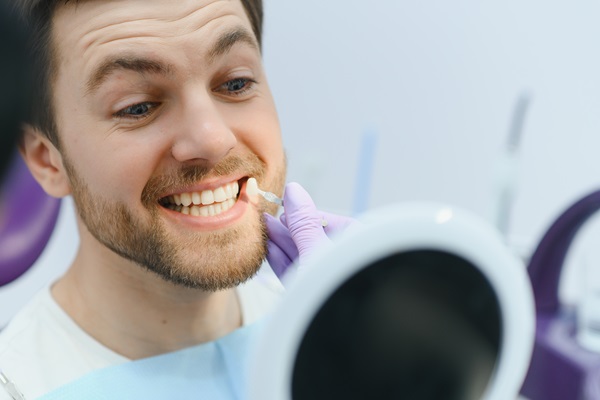Before and After Your Dental Bonding Procedure

Many patients are nervous before a dental bonding procedure, although the procedure itself is non-invasive, only takes one dental visit and does not require any anesthesia. You can prepare yourself mentally and physically for the procedure, however, by knowing what to expect, how to prepare and what to plan for after the procedure.
A review of the entire dental bonding procedure
The following details what to expect during the dental bonding procedure, how to prepare and what to expect after dental bonding. Overall, the procedure is simple and patients have nothing to fear, but learning more can help calm any anxieties that they may have before the day of the visit.
How to prepare for the dental bonding procedure
There are no noteworthy preparations in advance of a dental bonding procedure. However, there are ways to deal with anxiety before the visit and ways to ensure that the process goes as smoothly as possible. First, schedule the visit at a convenient time. This could be in the afternoon after work or school or early in the morning before the day begins, whichever option is best for the patient. They should be sure to do something relaxing the night before and get a good night of rest. Also, it is important to allow enough time to get to the dentist's office on time without having to rush.
What to expect during the dental bonding procedure
The procedure itself is pain-free and takes place in a comfortable chair inside the dentist's office. The dentist starts by cleaning the tooth (or teeth) that are receiving the dental bonding, followed by the placement of the bonding material (composite resin). The composite resin is carefully crafted to achieve the desired result, whether it is to lengthen a short tooth, repair a chip or crack or address another cosmetic imperfection. The material is then bonded into place with a special dental light, and the dentist can clean and polish the tooth for beautiful results.
The process after dental bonding and how to recover
Most dentists do not use any anesthesia during the dental bonding procedure, and the patient is welcomed to drive home the same day if they feel okay and are able to do so. The tooth may feel weird for several hours, and the patient may prefer to eat softer foods for the first day after dental bonding. For the long term, the patient should protect their teeth by treating bruxism (if necessary), taking precautions during contact sports by wearing a mouthguard and practicing good oral hygiene. Ideally, patients should brush two times a day, floss after each meal and use mouthwash daily, along with regular check-up visits with the general dentist.
Discuss dental bonding with our team to learn more
Dental bonding is a viable solution for many patients, and here at our dentistry, we believe that everyone should have a smile that they are confident showing off. Call us or send us a message to begin the treatment process with dental bonding.
Request an appointment here: https://belladental.us or call Bella Dental Center at (818) 350-8133 for an appointment in our North Hills office.
Check out what others are saying about our dental services on Yelp: Dental Bonding in North Hills, CA.
Related Posts
Bonding is a key element in cosmetic dentistry. The dentist will use it in various processes to restore your smile and improve your appearance. You should first speak to your dentist to see whether you are a good candidate for a cosmetic procedure. You can then discuss how bonding works and what the results will…
A smile makeover is a process that involves one or more cosmetic dentistry procedures to make a person's smile look better. Some of the treatments include bonding, dental crowns, veneers, and tooth-colored fillings. In many cases, the procedure can serve both aesthetic and functional purposes. The treatment options also depend on the patient’s individual condition.A…
Patients with dental implants often have questions about the affixed implant crown. Dental implants are ideal for replacing lost tooth roots, and crowns are crucial for helping you get your desired smile. One common query that dentists deal with is the possibility of replacing the dental crown on the implant.Patients will have a better knowledge…
A general dentist can help if you find yourself dealing with tooth pain. As uncomfortable as these sensations can be, they are your body’s way of letting you know something is wrong. It is typically one of the last symptoms of unaddressed dental issues to show up.Some of the reasons why you might experience toothaches…
